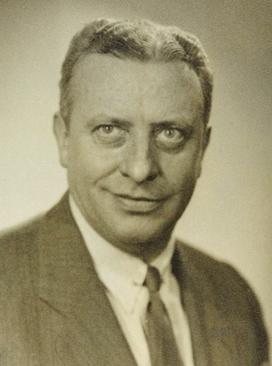Amok syndrome is an aggressive dissociative behavioral pattern derived from Malaysia that led to the English phrase, running amok. The word derives from the Malay word amuk, traditionally meaning "an episode of sudden mass assault against people or objects, usually by a single individual, following a period of brooding, which has traditionally been regarded as occurring especially in Malaysian culture but is now increasingly viewed as psychopathological behavior". The syndrome of "Amok" is found in the Diagnostic and Statistical Manual of Mental Disorders. In the DSM-V, Amok syndrome is no longer considered a culture-bound syndrome, since the category of culture-bound syndrome has been removed.

Adducted thumb syndrome recessive form is a rare disease affecting multiple systems causing malformations of the palate, thumbs, and upper limbs. The name Christian syndrome derives from Joe. C. Christian, the first person to describe the condition. Inheritance is believed to be autosomal recessive, caused by mutation in the CHST14 gene.
Medical anthropology studies "human health and disease, health care systems, and biocultural adaptation". It views humans from multidimensional and ecological perspectives. It is one of the most highly developed areas of anthropology and applied anthropology, and is a subfield of social and cultural anthropology that examines the ways in which culture and society are organized around or influenced by issues of health, health care and related issues.
Koro is a culture bound delusional disorder in which individuals have an overpowering belief that their sex organs are retracting and will disappear, despite the lack of any true longstanding changes to the genitals. Koro is also known as shrinking penis, and was listed in the Diagnostic and Statistical Manual of Mental Disorders.
Latah is a condition in which abnormal behaviors result from a person experiencing a sudden shock or other external stressor almost exclusively having been observed in persons from Southeast Asia. When induced, the affected person typically engages in such behaviors as screaming, cursing, dance movements, uncontrollable laughter, mimicry and command obedience. Physical symptoms include an increased heart rate and profuse sweating, but no clear physiological causality beyond the apparent relationship between sudden shock and/or severe emotional stress have been identified. Whereas no research has emerged indicating whether the behavior is caused by a genetic disorder unique to those of Southeast Asian ancestry, a set of psychosomatic symptoms triggered by Southwest Asian cultural anthropological factors, or another cause not yet hypothesized, it can thus not be determined whether the disorder is distinct to southeast Asian persons, or that persons with the disorder in southeast Asia simply express symptoms in a fashion unique to the local cultures of the region, either, until further scientific research of the rare condition is published.
The Jumping Frenchmen of Maine were a group of 19th-century lumberjacks who exhibited a rare disorder of unknown origin. The syndrome entails an exaggerated startle reflex which may be described as an uncontrollable "jump"; individuals with this condition can exhibit sudden movements in all parts of the body. Jumping Frenchmen syndrome shares some symptoms with other startle disorders.
Ladislas Joseph Meduna, a Hungarian neuropathologist and neuropsychiatrist, initiated convulsive treatment, the repeated induction of grand mal seizures in the treatment for psychosis. Observing the high concentration of glia in post-mortem brains of patients with epilepsy and a paucity in those with schizophrenia, he proposed that schizophrenia might be treated by inducing "epileptic" seizures. Thus, chemically induced seizures became the electroconvulsive therapy that is now in worldwide use.
In medicine and medical anthropology, a culture-bound syndrome, culture-specific syndrome, or folk illness is a combination of psychiatric and somatic symptoms that are considered to be a recognizable disease only within a specific society or culture. There are no objective biochemical or structural alterations of body organs or functions, and the disease is not recognized in other cultures. The term culture-bound syndrome was included in the fourth version of the Diagnostic and Statistical Manual of Mental Disorders which also includes a list of the most common culture-bound conditions. Counterpart within the framework of ICD-10 are the culture-specific disorders defined in Annex 2 of the Diagnostic criteria for research.
Piblokto, also known as pibloktoq and Arctic hysteria, is a condition most commonly appearing in Inughuit societies living within the Arctic Circle. Piblokto is a culture-specific hysterical reaction in Inuit, especially women, who may perform irrational or dangerous acts, followed by amnesia for the event. Piblokto may be linked to repression of the personality of Inuit women. The condition appears most commonly in winter. It is considered to be a form of a culture-bound syndrome, although more recent studies question whether it exists at all. Piblokto is also part of the glossary of cultural bound syndromes found in the Diagnostic and Statistical Manual of Mental Disorders (DSM-IV).
Echopraxia is the involuntary repetition or imitation of another person's actions. Similar to echolalia, the involuntary repetition of sounds and language, it is one of the echophenomena. It has long been recognized as a core feature of Tourette syndrome, and is considered a complex tic, but it also occurs in autism spectrum disorders, schizophrenia and catatonia, aphasia, and disorders involving the startle reflex such as latah. Echopraxia has also been observed in individuals with epilepsy, dementia and autoimmune disorders; the causes of and the link between echopraxia and these disorders is undetermined.
Medical students' disease is a condition frequently reported in medical students, who perceive themselves to be experiencing the symptoms of a disease that they are studying.
Grisi siknis is a contagious, culture-bound syndrome that occurs predominantly among the Miskito people of eastern Central America, and affects mainly young women. It is also known as "grisi munaia", "Chipil siknis", and "Nil siknis". More recently, cases occurring amongst people of Spanish descent have also been reported.
Iich'aa is a culture-bound syndrome found in the Navajo Native American culture. The non-exclusive list of symptoms are: epileptic behaviour, loss of self-control, self-destructive behaviour and fits of violence and rage.
Raymond Delacy Adams was an American neurologist and neuropathologist. He was Bullard Professor of Neuropathology at Harvard Medical School and chief of neurology at Massachusetts General Hospital. Along with Maurice Victor, Adams was the author of Adams and Victor's Principles of Neurology.
Ronald Lindsay André "Ron" Langevin is a Canadian forensic psychologist at the University of Toronto. He is the founding editor of Annals of Sex Research, now titled Sexual Abuse: A Journal of Research and Treatment.

John Farquhar Fulton was an American neurophysiologist and historian of science. He received numerous degrees from Oxford University and Harvard University. He taught at Magdalen College School of Medicine at Oxford and later became the youngest Sterling Professor of Physiology at Yale University. His main contributions were in primate neurophysiology and history of science.

Vincenzo Cerundolo was the Director of the Medical Research Council (MRC) Human Immunology Unit at the University of Oxford, at the John Radcliffe Hospital and a Professor of Immunology at the University of Oxford. He was also a Supernumerary Fellow at Merton College, Oxford. He was known for his discoveries in processing and presentation of cancer and viral peptides to T cells and lipids to invariant NKT cells. Cerundolo died of lung cancer on 7 January 2020.
Sarah C. "Sally" Humphreys is a classical scholar who unites the theories and methods of history and social anthropology in her work. She is currently Professor Emerita of History, Anthropology, and Greek at the University of Michigan in Ann Arbor, Michigan.
Francis L. K. Hsu was a China-born American anthropologist, one of the founders of psychological anthropology. He was president of the American Anthropological Association from 1977 to 1978.
Serious mental illness (SMI) is characterized as any mental health condition that impairs seriously or severely from one to several significant life activities, including day to day functioning. Four common examples of SMI include bipolar disorders, psychotic disorders, post-traumatic stress disorders, and major depressive disorders. People having SMI experience symptoms that prevent them from having experiences that contribute to a good quality of life, due to social, physical, and psychological limitations of their illnesses. In 2021, there was a 5.5% prevalence rate of U.S. adults diagnosed with SMI, with the highest percentage being in the 18 to 25 year-old group (11.4%). Also in the study, 65.4% of the 5.5% diagnosed adults with SMI received mental health care services.


